Navia es la capital del concejo del mismo nombre del Principado de Asturias, situada junto a la ría que forma en su desembocadura el río Navia, y punto de paso para los peregrinos del Camino de Santiago, que cruzaban el río mediante barcas. En su casco urbano se integran los restos del trazado medieval, barrios procedentes del ensanche decimonónico y barrios de las últimas décadas.
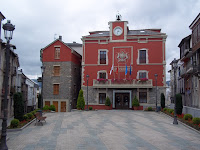

Navia is the capital of the council of the same name in the Principality of Asturias, located near the estuary of the Navia River, and a crossing point for pilgrims on the Camino de Santiago. The town center is integrated by the remains of the medieval streets, the expansion on the nineteenth-century, and the suburbs built in recent decades.
Dentro del trazado medieval que se sitúa sobre una pequeña colina, se ubican, entre otros, la iglesia de Santa Marina de Vega, la casa del Limonar, la casa natal del poeta Campoamor, la casa de la Marquesa de Navia-Osorio, y el Ayuntamiento, ubicado en una construcción del siglo XVIII y recientemente restaurado.
Within the medieval streets that sit on a small hill, we can find, among others, the church of Santa Marina de Vega, the home of Limonar, the birthplace of the poet Campoamor, the home of the Marquise de Navia-Osorio, and the City Hall, located in a building of the eighteenth century and recently restored.

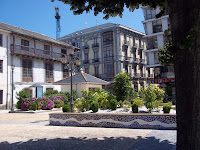
Con el retorno de los emigrantes de América desde mediados del siglo XIX se produjo una expansión de la villa ganando terrenos a la marisma. De esta época, y hasta comienzos del siglo XX, encontramos en este ensanche burgués notables muestras arquitectónicas con profusión de elementos decorativos y ornamentales propios de los estilos historicista y modernista o art noveau, como son el Casino, Palacio de Arias, los edificios de la Avda. de Ramón Álvarez Valdés, o el palacio Pérez Casadoiro.

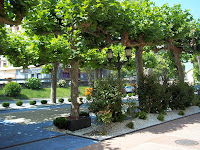
From the mid-nineteenth century, and because of the return of the emigrants from America, there was an expansion of the town by winning land to the marsh. Of this time, and until the early twentieth century, we find in this widening bourgeois neighbourhoods many constructions built in own-historicist and modernist/art noveau styles and with profuse architectural samples of decoration and ornament, such as the Casino, the Palace of Arias, the buildings of the Ramón Álvarez Valdés Avenue, or palace Casadoiro Perez.

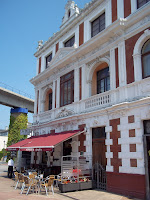
Finalmente, y desde mediados del siglo XX, la villa experimenta una expansión notable en nuevos barrios que dan cobijo al incremento de población derivado del creciente tráfico portuario y del aumento de la actividad industrial y de servicios. De esta época reseñamos el puente del ferrocarril y su viaducto de acceso que atraviesa la población, el puerto deportivo, destinado al amarre de embarcaciones deportivas y de recreo, el paseo marítimo y la senda costera, así como el monumento al poeta Ramón de Campoamor situado en el parque homónimo de la villa.

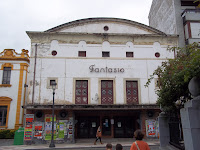
Finally, since the mid-twentieth century, the town experienced a remarkable expansion in new neighbourhoods inhabited by the increasing population derived from the growing port traffic and the increased industrial activity and services. From this epoch we should visit the railroad bridge and the viaduct through the village, the marina with mooring boats intended for sport and recreation, the seafront and the coastal footpath, and the monument to the poet Ramón de Campoamor, located in its namesake park of the villa.

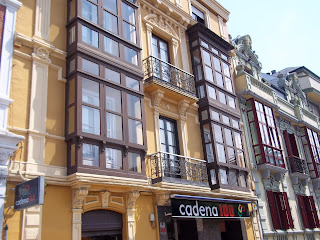
Un lugar precioso para recorrer, terminando la visita en cualquiera de sus numerosos establecimientos de restauración donde degustar su magnífica gastronomía.
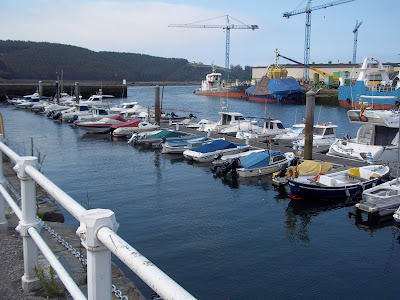
A beautiful place to visit, ending the tour at any of its many eateries where you can enjoy its magnificent cuisine.


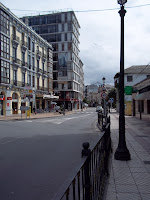

No hay comentarios:
Publicar un comentario